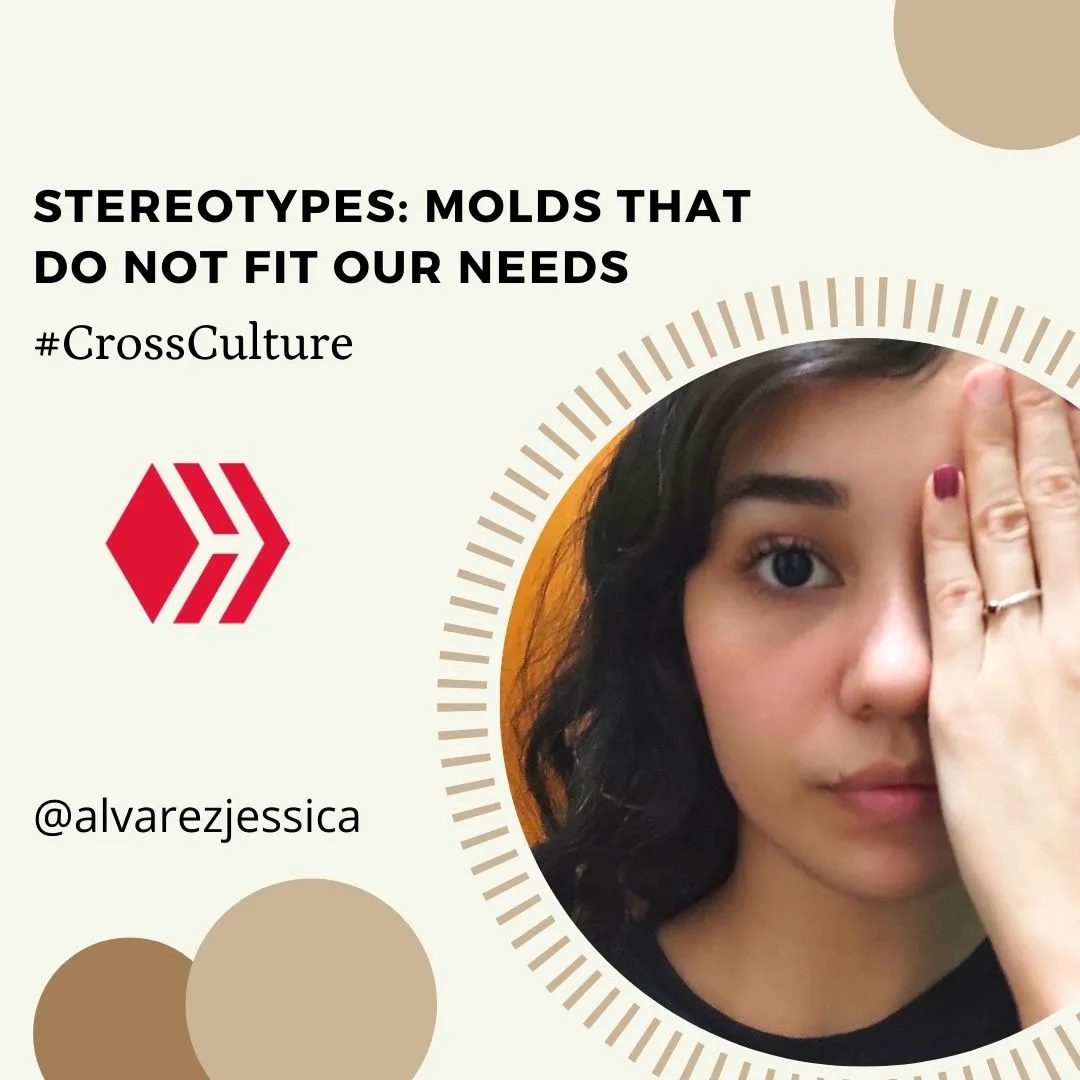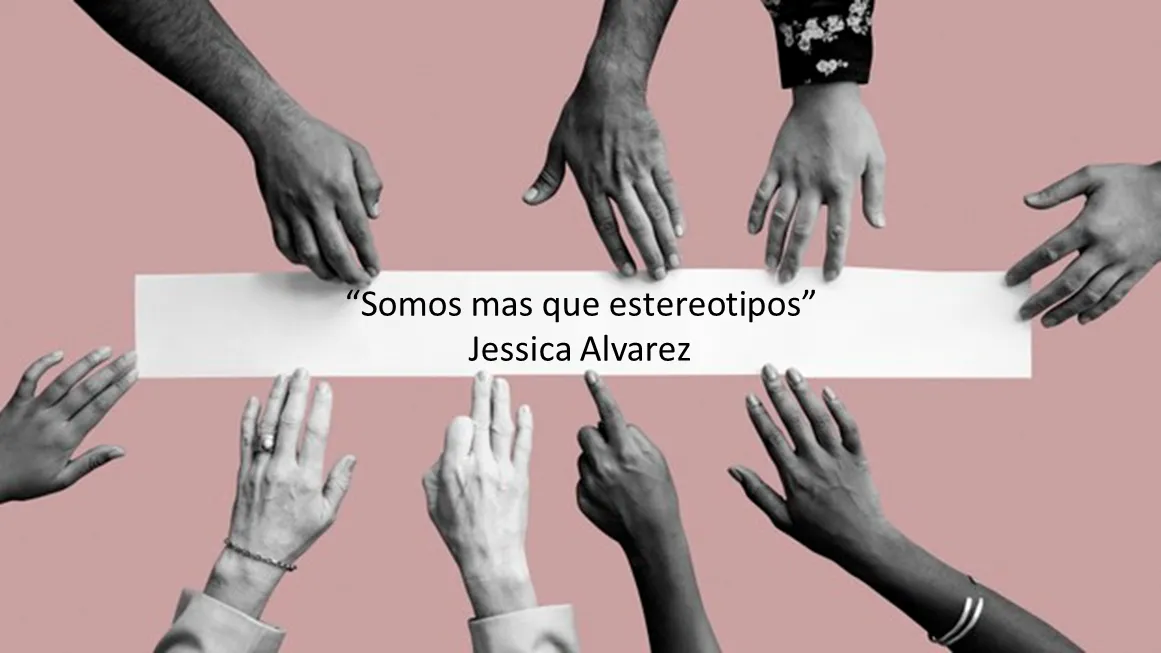Apreciado y talentoso Hiver, es un placer compartirte mi reflexión de un tema que me ha encantado. La iniciativa fue de la comunidad @crossculture y realmente aplaudo y honro la intención por la cual fue propuesta.
Appreciated and talented Hiver, it is a pleasure to share with you my reflection on a topic that I loved. The initiative was from the @crossculture community and I really applaud and honor the intention for which it was proposed.

Todos nos hemos visto en esa terrible posición de no aceptarnos, de no sentirnos plenos por lo que somos… E incluso, de desconocer realmente quienes somos.
We have all been in that terrible position of not accepting ourselves, of not feeling fulfilled for who we are... And even of not really knowing who we are.
En sí, ya estar en esa situación es abrumadora y desconcertante, pero la parte más difícil, es que la mayoría de las veces esos sentimientos son producidos y fortalecidos por la sociedad.
In itself, being in that situation is already overwhelming and disconcerting, but the hardest part is that most of the time those feelings are produced and strengthened by society.
¿Cuántas veces no nos hemos visto obligados a pertenecer a una categoría? ¿A encajar en un molde que no es de nuestra medida?
How many times have we not been forced to belong to a category? To fit into a mold that is not our size?
La sociedad se ha enfocado en crear estereotipos para intentar agrupar a una comunidad de personas con una característica en común (ese es el concepto propio de la palabra), pero lo que realmente han ocasionado, es separarnos.
Society has focused on creating stereotypes to try to group a community of people with a common characteristic (that is the proper concept of the word), but what they have really caused, is to separate us.
¿A quién va a gustarle que lo cataloguen de algo que esa persona no quiere ser?
Who is going to like being labeled as something that person doesn't want to be?
¿Por qué llamar “nerd” a una persona responsable, comprometida y que ame educarse y aprender?
Why call a responsible, committed person who loves education and learning a "nerd"?
¿Por qué llamar “flacucho” a alguien que metabólicamente está sano y bien alimentado, pero que le cuesta mucho desarrollar masa muscular?
Why call someone who is metabolically healthy and well nourished, but has a hard time building muscle mass, "skinny"?
Y allí hablo con un enfoque bastante personal, pero si inclino mi reflexión a un punto mucho más social y cultural, ocurre lo mismo.
And there I speak with a rather personal approach, but if I incline my reflection to a much more social and cultural point, the same thing happens.
Soy venezolana, así que hablare basándome en mi realidad nacional, pero estimo que todos los países y todas las culturas del mundo tienen el mismo problema.
I am Venezuelan, so I will speak based on my national reality, but I believe that every country and every culture in the world has the same problem.

En mi país se manejan muchos términos que, aunque si son una característica propia de algunas personas, no corresponden a un verdad absoluta. Por ejemplo, es muy natural dirigirse al venezolano como un ciudadano sin identidad cultural, porque nos adaptamos fácilmente a otras culturas y porque aceptamos en nuestro propio territorio, otras culturas.
In my country many terms are used that, although they are a characteristic of some people, they do not correspond to an absolute truth. For example, it is very natural to address Venezuelans as citizens without cultural identity, because we adapt easily to other cultures and because we accept other cultures in our own territory.
Pero, desde mi criterio, aceptar culturas de otros países, no minimiza el orgullo por la nuestra. Yo por ejemplo, puedo escuchar alegremente canciones mexicanas y amar los Kimonos Japoneses, al mismo tiempo que zapateo con el Joropo y uso alpargatas llaneras.
But, in my opinion, accepting the cultures of other countries does not minimize pride in our own. I, for example, can happily listen to Mexican songs and love Japanese Kimonos, at the same time that I tap my feet to the Joropo and wear llanera espadrilles.
“Despreocupados y flojos” Es otro de los estereotipos con los que nos suelen identificar y que realmente no son ciertos. A diferencia de otras culturas, los venezolanos son realmente tranquilos, pero “tranquilidad” no es sinónimo de “flojera”.
"Carefree and lazy" This is another of the stereotypes with which we are often identified and which are not really true. Unlike other cultures, Venezuelans are really quiet, but "quiet" is not synonymous with "lazy".
“Los venezolanos odian su país” lo dicen mucho y no es así. La situación actual ha obligado que muchos deban emigrar a otros países, y eso está bien, el bienestar y la tranquilidad económica y social son un derecho inherente al ser humano, pero el amor a nuestra nación no se desvanece en otras tierras.
"Venezuelans hate their country" they say it a lot and it is not so. The current situation has forced many to emigrate to other countries, and that is fine, the welfare and economic and social tranquility are an inherent right of human beings, but the love for our nation does not fade in other lands.

Y así, podría seguir mencionando otros estereotipos venezolanos, pero lo que quiero enfatizar es que tratando de caracterizar, contrastar y enmarcar similitudes y diferencias, la sociedad ha olvidado que cada individuo es un ser completamente único.
And so on, I could go on mentioning other Venezuelan stereotypes, but what I want to emphasize is that in trying to characterize, contrast and frame similarities and differences, society has forgotten that each individual is a completely unique being.
Sabiendo eso, deberíamos considerar y seguir el ejemplo de Winston Churchill, Primer Ministro Inglés, a quien se le pidió una opinión general sobre los franceses y este respondió: "No tengo una opinión porque no los conozco a todos".
Knowing that, we should consider and follow the example of Winston Churchill, English Prime Minister, who was asked for a general opinion on the French and replied: "I have no opinion because I don't know them all".
Y dejar de un lado esos intentos innecesarios de encajar a todas las personas en un único molde, que lo único que trae a nuestras vidas es falta de plenitud, desdicha y desmotivación para explorar y explotar nuestro verdadero potencial.
And to put aside those unnecessary attempts to fit all people into a single mold, which only brings to our lives a lack of fulfillment, unhappiness and demotivation to explore and exploit our true potential.

Si llegaste hasta aquí, muchísimas gracias, me ha parecido un tema extraordinario y digno de debate, porque mientras más consciente nos hagamos de las cosas que debemos arreglar en nuestra sociedad, más rápido podemos construir el mundo que necesitamos. Te envío un abrazo repleto de reflexión.
If you made it this far, thank you very much, I found it an extraordinary topic and worthy of debate, because the more aware we become of the things we need to fix in our society, the faster we can build the world we need. I send you a hug full of reflection.
Importante: El texto fue traducido a través de Deepl Traductor. La segunda imagen pertenecen a Freepik y la tercera al twitter de RCTV.
Important: The text was translated through Deepl Translator. The second image belongs to freepik and the third to RCTV's Twitter.
